

In this issue, we find out what’s going on in some ICORD research labs and meet some interesting PhD students. Plus: we report on a plethora of events, tell you about some new research studies, and share some news from our partners.


Researchers in Dr. Corree Laule’s lab study how myelin water can be used to create more detailed MRI images of the brain and spinal cord. A regular MRI can show areas of injury in the brain and spinal cord, but doesn’t show the details about what exactly has happened to the tissue. Dr. Laule is investigating new ways to take MRI pictures that are more specific to damage. Her main interest is myelin, an important insulator that is wrapped around brain and spinal cord nerve cell processes. Myelin makes signals travel quickly around the nervous system, and when myelin is damaged in injury or disease, nervous system signals slow down or completely stop. Myelin is made up of fats, proteins and water, and using MRI Dr. Laule can measure the ‘myelin water.’ One of Dr. Laule’s PhD students, Kevin Liu,has made two myelin water imaging normative atlases for both adult human brains and spinal cords, and her other PhD student, Sarah Morris, has made one for children. “Having atlases for the normal population is key to identifying differences in people with injury or disease. Normal atlases also let you detect abnormalities in individual patients by comparing a patient scan to the normal atlas,” explains Dr. Laule. Kevin’s project also used artificial intelligence and machine learning to come up with a way to analyze the lab’s myelin water MRI data 150 times faster than before!

Images from the myelin water atlas created by Kevin Liu

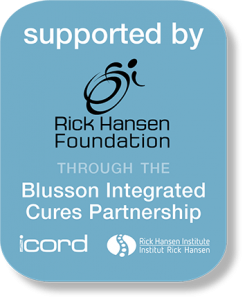
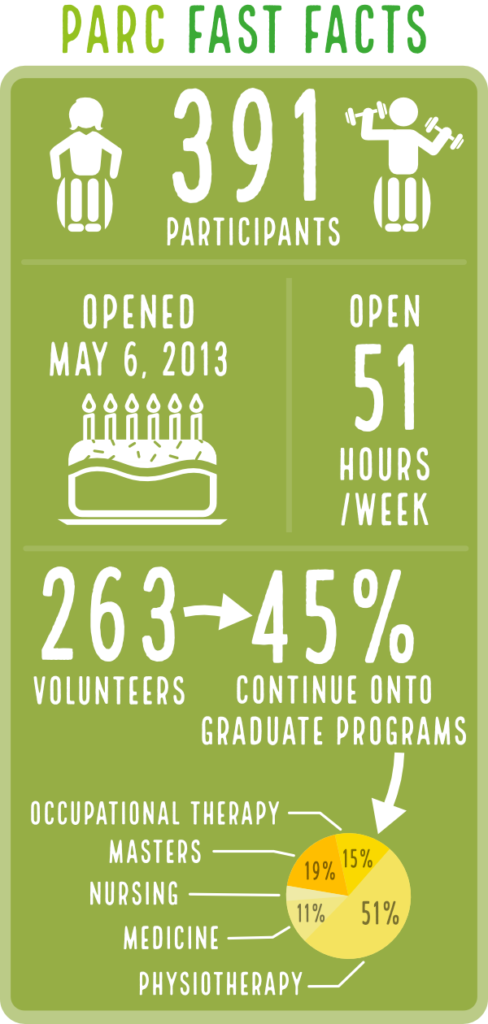
In 2016, Swedish exercise experts Dr. Anna Bjerkefors and Mats-Erik Bjerkefors came to Vancouver on a BICP-funded international travel award to collaborate with Dr. Tania Lam and her team inICORD’s Yuel Family Physical Activity ResearchCentre (PARC) to develop workshops to train fitness leaders how to work with people with SCI. The PARC team successfully ran two pilot workshops in the summer of 2016: one for SCI peers and PARC students, and another for community trainers. They received great feedback as well as lots of requests for future training opportunities. Around the same time, the PARC team also launched an initiative to explore the feasibility and benefits of group exercise programs (spin classes, boxercise training, circuit training) for people with SCI.
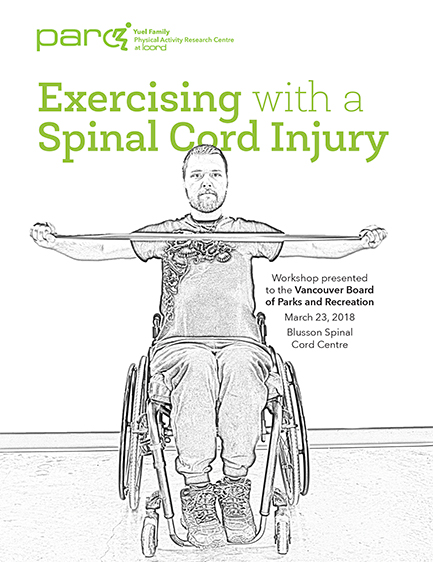 Last year, PARC staff began collaborating with the Vancouver Board of Parks and Recreation, and the City of Surrey Parks, Recreation & Culture to provide training for their community fitness leaders on how to work with individuals with disabilities. A staff inservice for nearly 40 Vancouver Community Centre trainers at ICORD in March 2018 was a huge success, and the pilot data that was collected showed a significant increase in the trainers’ knowledge and confidence. Using data from the workshops with the Swedes and this inservice, Dr. Lam and her team successfully applied for a Michael Smith Foundation for Health Research Grant of $10,000to continue working with Vancouver and Surrey to train their trainers and assist in updating their facilities to be more inclusive.
Last year, PARC staff began collaborating with the Vancouver Board of Parks and Recreation, and the City of Surrey Parks, Recreation & Culture to provide training for their community fitness leaders on how to work with individuals with disabilities. A staff inservice for nearly 40 Vancouver Community Centre trainers at ICORD in March 2018 was a huge success, and the pilot data that was collected showed a significant increase in the trainers’ knowledge and confidence. Using data from the workshops with the Swedes and this inservice, Dr. Lam and her team successfully applied for a Michael Smith Foundation for Health Research Grant of $10,000to continue working with Vancouver and Surrey to train their trainers and assist in updating their facilities to be more inclusive.
Building on their experience offering adaptive spin classes at ICORD, the PARC team helped establish an inclusive spin program at Vancouver’s Champlain Community Centre and provided training to the instructor. The class offers the use of arm-cycles in addition to classic stationary bikes. Some PARC participants have started attending the weekly Champlain classes and have said they are awesome!
Over the coming summer, the PARC team plans to continue to work with Surrey and Vancouver on inclusive fitness initiatives. They will be helping Vancouver to create more inclusive circuit training classes, and providing fitness leaders in Surrey with weight room experience and practical skills around inclusive equipment, and they’ve also started discussions with the Cities of Burnaby and Coquitlam to begin partnerships with their community centres as well!

Laura de la Vega, PhD student with UVic associate professor and ICORD PI Dr. Stephanie Willerth, is working on a really cool project: she’s using human neural progenitor cells mixed with bioink to “print” spinal cord tissue to use in the screening of potential therapies and new discoveries in SCI.
“A great barrier for the existence of potential treatments for SCI include the time, cost, and rate of failure of clinical trials,” Laura points out, and these are issues that 3D bioprinting can help address. Creating 3-dimensional models for the discovery of drugs better accounts for the conditions found in a real-world spinal cord injury.
To make the bioprinted tissue, Laura takes neural progenitor cells (cells that will turn into neurons) made from human fibroblasts (a common type of cells) and mixes them with a special bioink she developed with her colleagues. Laura hopes that her research will support the creation of experiments on patient-specific tissues that will ultimately translate into clinical studies.

After earning a degree in Bioengineering and Kinesiology, Yao Sun developed her interests in neural control of movement and rehabilitation while working in a motor control laboratory in Beijing. She was testing and modifying a variety of training devices for people with stroke, but wanted to better understand the neurophysiological mechanisms of movements and why some types of training work better than the others, so she moved to Victoria to do her PhD with ICORD PI Dr. Paul Zehr.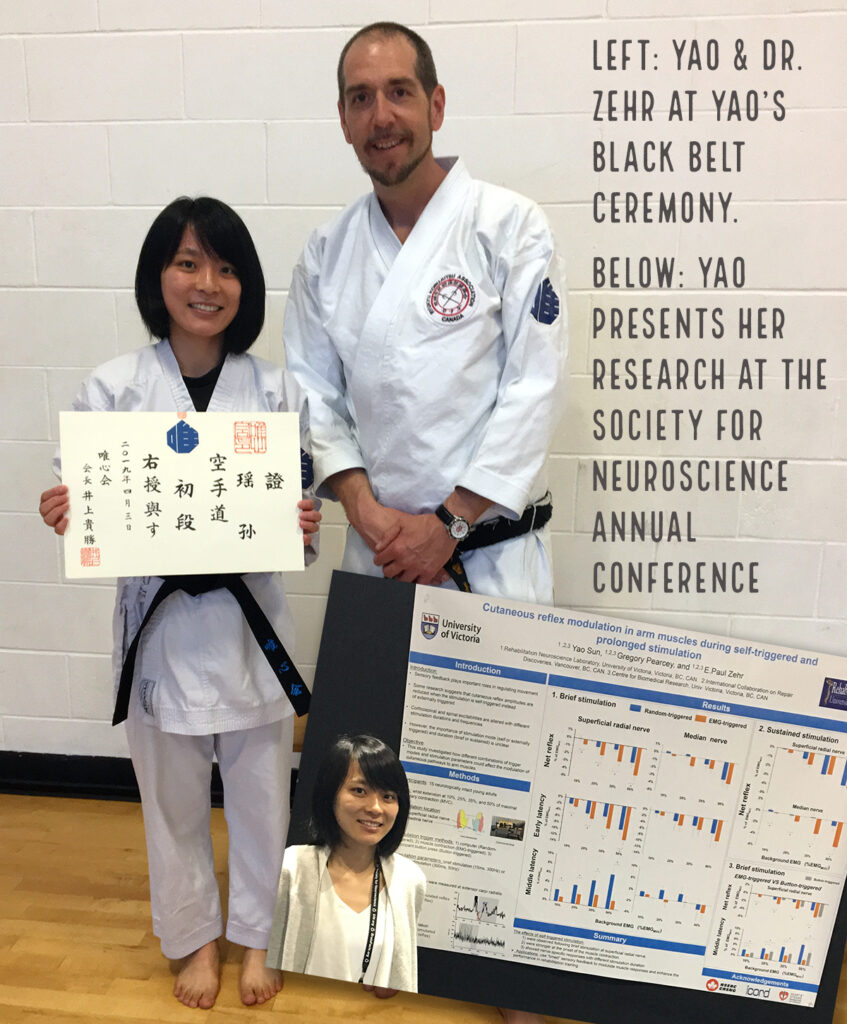
One of the projects that Yao is collaborating on with two other grad students is called KICC (Karate Intervention for Chronic Conditions), which studies the effects of practicing fundamental karate movements in balance performance for elderly people. She’s perfect for this project, because in addition to being a PhD student, she’s also been doing martial arts training since she was young. “My interests in martial art started from watching lots of kung-fu movies and TV shows when growing up. I learned Taekwondo and Chinese traditional martial arts very briefly when I was in China but had to stop due to my school and work schedule. I hoped to continue my training in martial arts if I had a chance, and when I found out Dr. Zehr is also a Karate instructor, I joined his class,” said Yao.
“Karate training and PhD training both take time and consistent work, and they both require you continuously learn new stuff while also reviewing what you have already learned. Dr. Zehr is a great mentor for both! I feel one type of training definitely benefits the other. Karate training not only reduces my stress, it also helps me see the real-world application of what I’ve learned from neurophysiology, anatomy, biomechanics, and motor learning. This is the most interesting part of the training and it motivates me to learn and practice more, both in the lab and in the dojo.”
Yao earned her Black Belt in Karate this month. She’s hoping to finish her PhD in September.

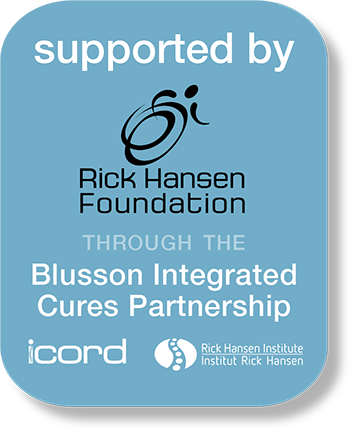
ICORD PIs Drs. Wolfram Tetzlaff and Aziz Ghahary both credit BICP-funded programs for their recent success in securing competitively-funded external research grants.
Dr. Ghahary has received a Collaborative Health Research Project grant from the federal government. He and his colleagues Drs. Reza Jalili (ICORD / Surgery), Frank Ko (Biomaterials Engineering), and Dirk Lange (Urology), will receive $778,000 over three years from CIHR and NSERC for their project, Therapeutic use of micro-sponge embedded nutritional liquid scaffold for treatment of non-healing wounds. Dr Ghahary said that the preliminary findings he was able to gather using ICORD seed grants led to his success in this funding competition.
Dr. Tetzlaff also used preliminary data generated by a BICP-funded research project to successfully apply for a US$735,000 United States Department of Defense research grant to investigate a combination of clinically used drugs for their protective effects after acute cervical spinal cord injury in rodent models.
The seed grant program is part of the Best and Brightest program of the Rick Hansen Foundation-funded Blusson Integrated Cures Partnership, to support the development of talent and novel ideas in SCI research.


We’ve had a lot going on at ICORD since the beginning of the year!
February 11, 2019, was declared the International Day for Women and Girls in Science by the United Nations, and ICORD held a special event in celebration.Despite the unexpected snow, more than a hundred people came to the Blusson Spinal Cord Centre to see posters by ICORD women and displays by SCWIST and IEEE Women in Engineering. Dr. Lesley Shannon, NSERC Chair for Women in Science and Engineering (BC & Yukon), gave a keynote about her own career path and the gender-related challenges she has faced. She then joined Drs. Gail Murphy (UBC VP Research & Innovation, UBC), Zena Sharman (Director, Strategy, MSFHR), and Mali Meibod (Medical Science Liaison, Astrazeneca), for a panel discussion moderated by Faydra Aldridge (Director, Stakeholder Relations, VCHRI). Generous support for this event was provided by the BICP, L’Oréal, Lazy Gourmet, VWR, Legacy Liquor Store, and Bean Around the World-VGH.
Just two days later, on February 13, ICORD PI Dr. Andrei Krassioukov hosted the 5th International Autonomic Symposium: Women’s health after spinal cord injury. The event included research talks and consumer panels on the topic of crucial women’s health issues after SCI, including sexual health, pregnancy, postpartum health and aging, with speakers from Sweden, Denmark, China, Winnipeg, New Brunswick, Toronto, Kamloops and Vancouver. The event ended with an engaging Café Scientifique, held with the support of the Rick Hansen Institute and SCI-BC, who live-streamed the event.
ICORD’s 16th Annual Research Meeting (ARM) took place on March 6 and 7 this year, with plenary speakers Drs. Amy Latimer-Cheung from Queen’s University and James Grau from Texas A&M University. The ARM is an opportunity for ICORD faculty, staff, and trainees to hear from internationally-renowned SCI experts, share their research with each other, and develop new collaborations. This year’s 1.5-day event had 177 registered participants, with 13 research talks by ICORD PIs, and 67 research posters presented by trainees and staff. We are grateful to the BICP for supporting the ARM.
On April 8 and 9, SCI researchers and trainees from across the country converged on the BSCC for the Canadian Spinal Cord Injury Research Biannual Meeting. This was a continuation of a series initiated in 2006 by Dr. Karim Fouad of the University of Alberta and ICORD Director Dr. Wolfram Tetzlaff, and held alternately in Eastern and Western Canada. See the full schedule and speaker list here. In addition to the many ICORDians speaking, presenting posters, and participating in the conference, ICORD also provided space and logistical support for the event. Major funding for this conference was provided by Wings For Life, the Craig H. Nielsen Foundation, and the Ontario Neurotrauma Foundation.
Finally, on May 13, the ICORD Trainee Committee hosted their Trainee Symposium. This annual event is planned, organized, and executed by trainees, offering the organizing committee some excellent experience in addition to providing everyone with a great day of research talks and poster presentations. Supported by the BICP, this year’s Trainee Symposium featured plenary talks by Drs. Kathleen Martin Ginis of UBC-O, and Kristian Franze of Cambridge University in the UK.

an ICORD-O update by Jan van der Scheer
ICORD-Okanagan has had a very productive start of the year! We recently welcomed Honourable Minister Carla Qualtrough and MP Stephen Fuhr, together with our local community and research partners, for the opening of our new Health Behaviour Change research space. It was great to hear all the positive feedback on the new space, also from Minister Qualtrough, who has been such a great advocate for accessibility in Canada. We are also excited to have our first study running in this new lab space. It’s a case series study on the acute effects of exercise and diet on pain, immune markers and feelings of wellbeing, which has generously been supported by a BICP Seed Grant. This study builds the case for an exercise-pain randomized control trial that we are preparing to start later this year. Together with our community partners, recruitment has gone fantastically well and we are well underway with testing and analyses. Stay tuned for more in the next issue of the ICORDian!
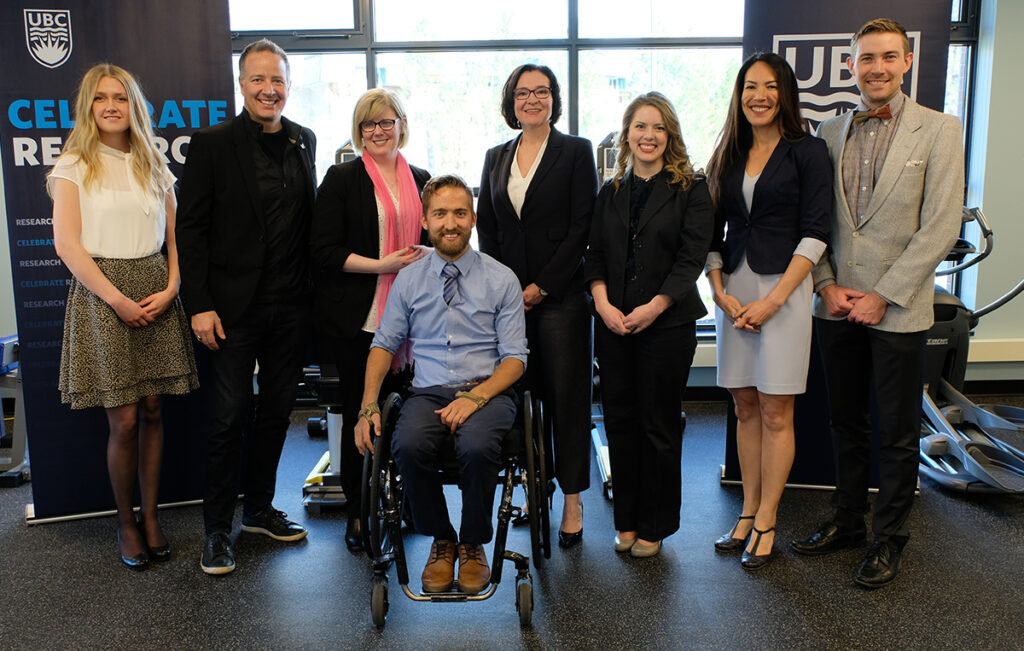
L-R: Rhyann McKay (Gainforth lab trainee), MP Stephen Fuhr, Hon. Minister Carla Qualtrough, Rob Shaw (Martin Ginis lab trainee), Dr. Kathleen Martin Ginis, Dr. Heather Gainforth, Dr Mary Jung (Health and Wellness lab co-lead), Dr Sean Locke (Jung lab postdoc) at the opening of the new lab.

ICORD postdoctoral research fellow, Dr. Jacquelyn Cragg, was the sole North American recipient of the L’Oréal-UNESCO For Women In Science International Rising Talent Prize for 2019. She received her prize at a ceremony in Paris in March (click here to see the video of the ceremony—skip to 1:53:30 if you don’t have a whole hour). We’re happy to report that the UBC Faculty of Pharmaceutical Sciences recognized Dr. Cragg’s amazing talent and potential, and has just hired her as an assistant professor. Starting this summer, she’ll be based at the UBC Point Grey campus, but will still spend some time at ICORD working on research projects she already has underway here.
Read more about Dr. Cragg’s research, and the L’Oréal prize, here.

Photo by Martin Dee

Dr. Andrei Krassioukov was recently named of President of the American Spinal Injury Association at the ASIA Annual Meeting in Honolulu. This is the first time a Canadian has held this position, and it’s not only a great honour for Dr. Krassioukov, but also for ICORD, UBC, VCH, and VCHRI. Dr. Krassioukov’s first message as president is posted here.
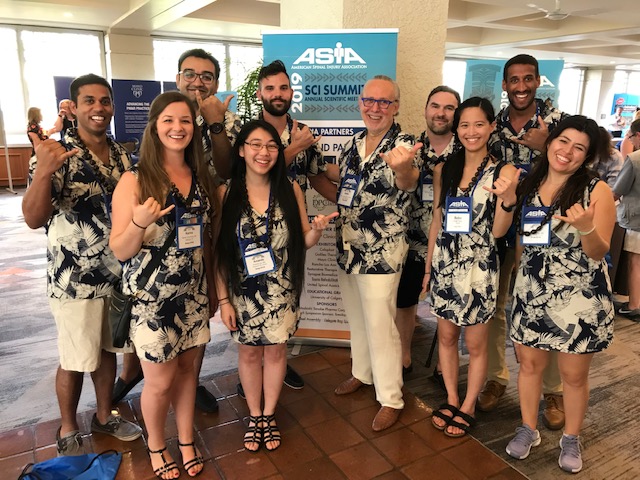
Dr. K and his team really caught the Aloha spirit!

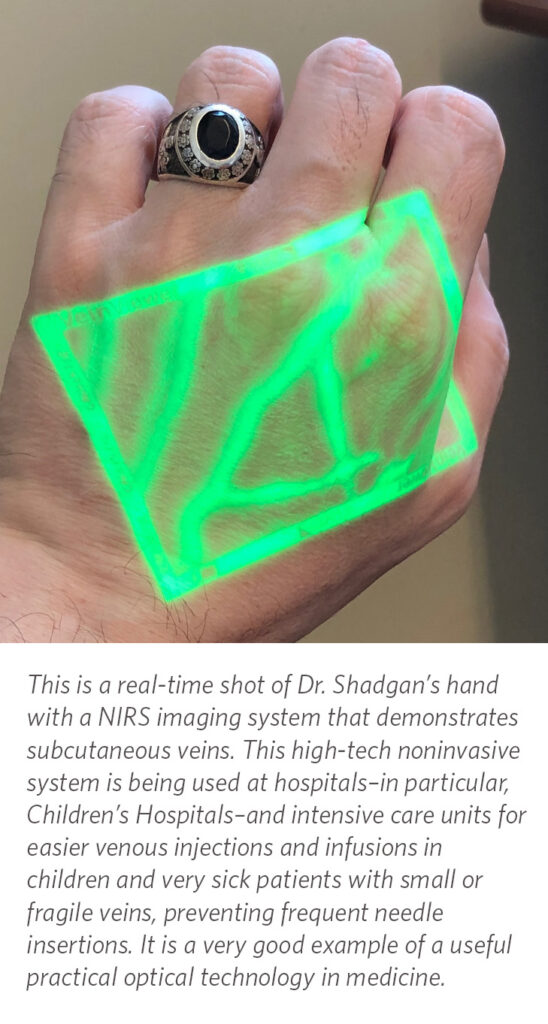
One of ICORD’s newest PIs, Dr. Babak Shadgan, uses biophotonics techniques to study processes occurring inside tissues, including their supplies of blood and oxygen, in a clinical setting. In one of his projects, he is working with Dr. Brian Kwonon developing a new method for continuous monitoring of spinal cord hemodynamicsand oxygenation in people with acute SCI using an implantable NIRS sensor small enough to be placed over the spinal cord.
Dr. Shadgan will have the honour of chairing a new SPIE conference in San Fransisco next year. The Biophotonics in Sport, Exercise and Activity Monitoring Conference will include presentations, discussions, and the exchange of state-of-the-art information related to the latest research and development of optics and photonics technologies applied in sensing and monitoring sports performance, exercise physiology and body activity.
Dr. Shadgan is an assistant professor in the UBC Department of Orthopaedics. He is supported by the BICP Best and Brightest program.

Opthalmology assistant professor Dr. Ipec Oruc and her lab joined ICORD in the summer of 2013. She and her team study visual perception in autism spectrum disorder (ASD). ASD is a disorder characterized by social impairments, yet visual atypicalities are very common in this population. For example, individuals with ASD have problems recognizing faces and facial expressions. The origins of this impairment have been the topic of lively debate in the literature. A recent paper published in Psychological Science sheds some light onto this, and suggests that reduced face abilities in this population likely stem from low social motivation, which limits encounters with faces (e.g., by reducing social interactions or face looking behaviours) and opportunities to experience a rich variety of faces. Dr. Oruc and her team have also embarked on a new collaborative research direction with colleagues from Ophthalmology, Math and Neuroscience, aimed at automated diagnosis and prediction based on retinal imaging using deep learning techniques such as convolutional neural networks. This pilot project has started to bear its first fruits: this set of results, including categorization of sex from retinal photos—a trait thought not to be present or quantifiable in fundus images until recently—will be presented at the 2019 Ophthalmology Research Day.


Interested in helping ICORD researchers make SCI preventable, livable, and curable? These research studies (and more) are in need of participants!
 Effects of a single exercise session or meal on physical and mental health
Effects of a single exercise session or meal on physical and mental health
Researchers in Dr. Kathleen Martin Ginis’s lab want to understand the effects a single meal on the inflammatory processes of the body, to understand the effects of a single bout of exercise on inflammation, and to better understand the relationships between inflammation and psychosocial outcomes (i.e., neuropathic pain, perceived stress, and affect). This study takes place in the new Health and Wellness lab at UBC-O. Click here for details.

Spinal Cord Injury research participants’ views on data sharing
Researchers in Dr. John Kramer’s lab are investigating how SCI research participants feel about researchers using their data. Specifically, they are interested in learning more about how SCI research participants feel about data sharing. Data sharing is when the data collected in one research study is anonymously shared with others. This means that a researcher allows others to see and use the individual data they collected in a research study, after deleting information that could identify people (like your name and exact birthdate). Other medical information is provided in full. As it is your information that would be shared (anonymously), they are very interested to find out your opinions on data sharing. Click here for details.
![]()
Wheelchair Navigation
Researchers in Dr. Ben Mortenson’s lab want to build a better understanding of the challenges people who use wheeled mobility devices face and the decisions they make when planning and traveling to destinations in their devices through the pedestrian environment. This is a two part study: in the fist part we are asking people to share their experiences as they try to navigate around the UBC campus. It takes approximately 1 1/2 hours. The second part, which can be done on the same day or at a later date, involves mapping your journeys in your own neighbourhood on a computer and may take up to 2 hours. Click here for details.
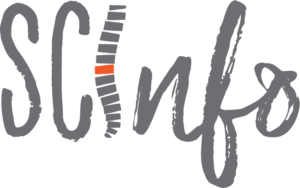 Did you know that volunteers at our SCI Community Resource Centre prepare summaries of scientific papers and post them on our SCInfo blog? If you’re interested in what’s going on in SCI research around the world, this is a good place to look.
Did you know that volunteers at our SCI Community Resource Centre prepare summaries of scientific papers and post them on our SCInfo blog? If you’re interested in what’s going on in SCI research around the world, this is a good place to look.

Access means #EveryoneEverywhere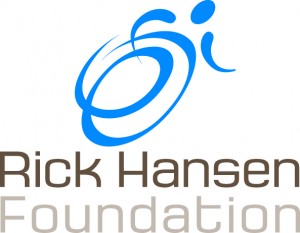
Let’s build a Canada which is accessible to all.
We believe that all people should be able to go all places, which is why we are excited to share the #EveryoneEverywhere campaign from the Rick Hansen Foundation. A lack of physical accessibility in the built environment is a fundamental barrier to inclusion for people with disabilities affecting their mobility, vision and hearing. If Canadians can’t access the places where we live, work, learn and play, then they’re unable to contribute to and participate fully in society. We all benefit when people with disabilities have the opportunity to share their skills and creativity and reach their full potential. Visit rickhansen.com/EveryoneEverywhere to learn more, and discover stories about the impact of access.

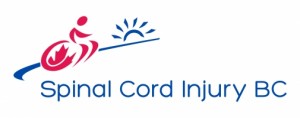
SCI BC has three interesting events coming up in June!
YVR Experience Tour: June 4. RSVP to Jocelyn. Click here for more information

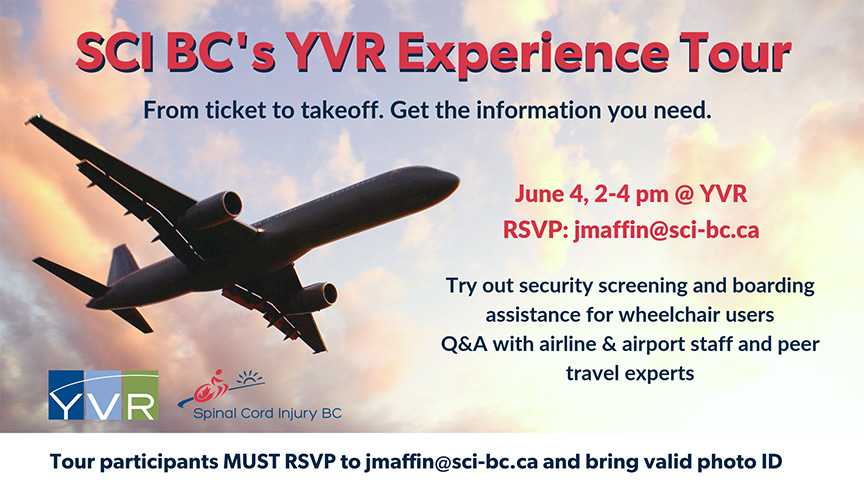 Guys’ Garage: June 15, RSVP online
Guys’ Garage: June 15, RSVP online 
Handcycle Demo Day: June 8
This is the first year we’ve combined our Vancouver and Fraser Valley handcycle events into one, and we’re hoping to get a good crowd out! Bring your family and friends! We will have bikes on hand to test drive and tons of gear to try out. Including, but not limited to, handcycles, add-ons for chairs, the Quickie Attitude handcycle, helmets and an aMTB. We will have bikes available for adults and kids. Experienced riders and vendors will be on hand to answer questions and explain the equipment. This is a great event for people who have never tried handcycling before, or for those who loved cycling before their injury and want to get back into the sport. There will be a free lunch, music and a bingo game!
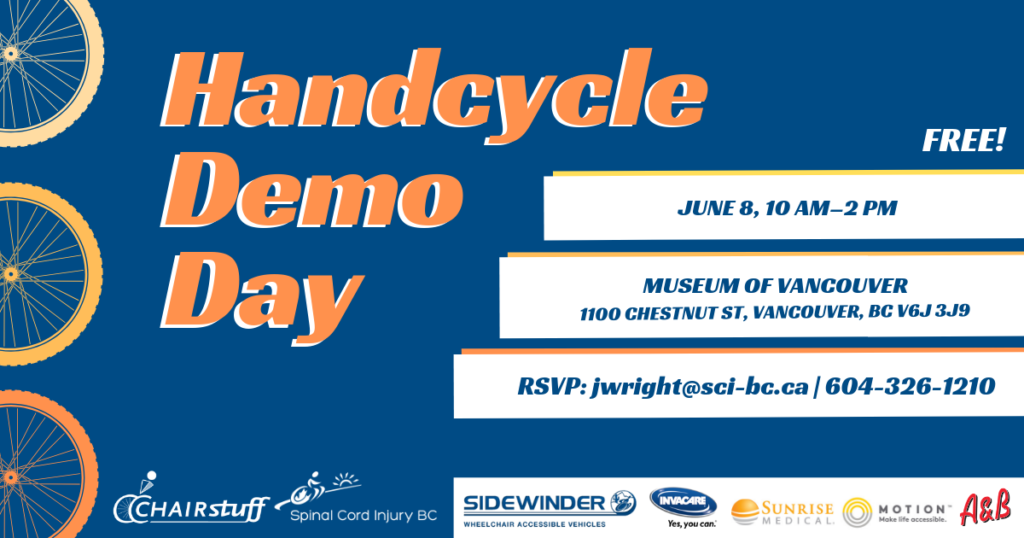


ICORD and the Rick Hansen Institute are working together to identify new treatments for SCI and apply existing treatments for other neurological disorders, injuries and diseases to SCI. Funded by the Rick Hansen Foundation, the Blusson Integrated Cures Partnership provides ten years of stable funding for several multi-year research projects as well as new faculty positions within ICORD, international exchanges to encourage collaboration, research-related events (like the Annual Research Meeting and seminar series) and a consumer engagement strategy which aims to provide people with SCI and their supporters with evidence-based information about the healthcare, services and resources available to best support recovery after SCI and increase consumer involvement in the research process.
We are very grateful for this generous support.
 Thanks for reading this issue of The ICORDian – we hope you enjoyed it! Please subscribe and have future issues delivered to your inbox. If you have any comments about this issue or suggestions for future ones, please contact us.
Thanks for reading this issue of The ICORDian – we hope you enjoyed it! Please subscribe and have future issues delivered to your inbox. If you have any comments about this issue or suggestions for future ones, please contact us.
Thanks to Adam Mesa, Laura de la Vega, Corree Laule, Yao Sun, Allison Williams, Sharon Lee, Ipec Oruc, Amanda Lee, Martin Dee, Jan van der Scheer, and Babak Shadgan for their contributions to this issue of our newsletter.

